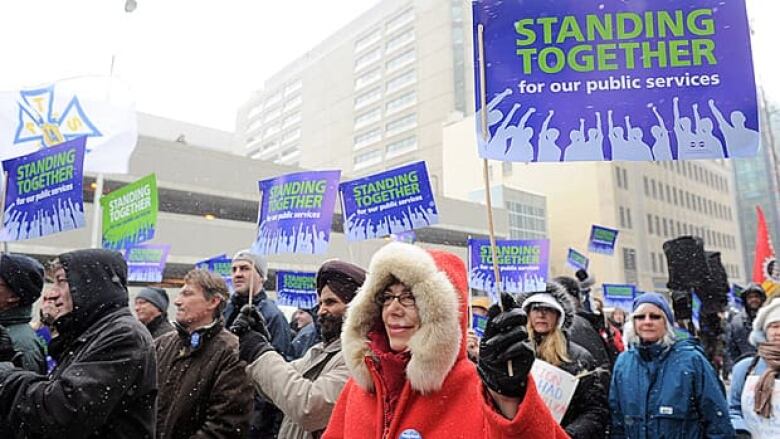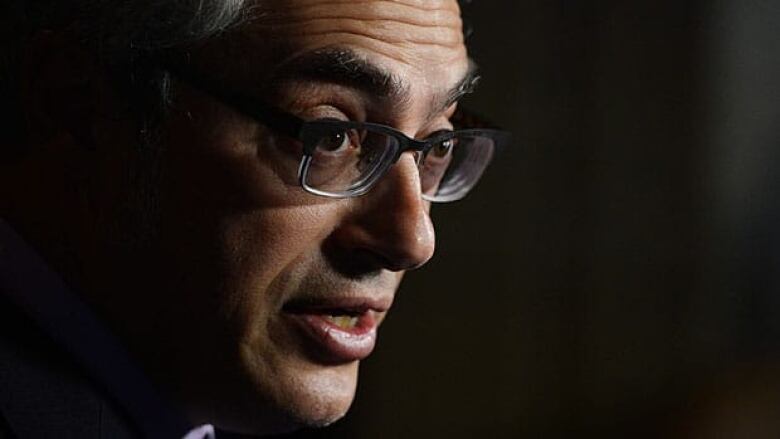Budget targets retired public servants' benefits
Change to plan would see individual pensioner pay roughly $290 a year more for benefits

Tens of thousands of retired federal employees will have to pay twice as much for their benefit plans under a proposed change introduced in the federal budget Tuesday.
The government announced it wants to boost the percentage of the Public Service Health Care Plan for pensioners that employees pay from roughly 25 per cent to 50 per cent.
The move represents a significant savings for the government$7.4 billion in future liabilitiesthat have to be factored into the medium-term forecast. But in terms of actual year-to-year savings the plan would save about $150 million annually.
The change in cost would apply to all pensioners who were eligible to opt into the plan and have done so, but would not touch the benefits of publicservantswhile they are currently employed.
For a pensioner opting for the individual benefits plan, the change would increase annual payments from $261 to roughly $550. For a pensioner with a family plan, the change would increase payments from $513 to roughly $1,080 a year.
Changes to be negotiated with unions
The plan also would increase the number of years of service required to participate in the plan from two to six years.

The government also said it intends to ensure low-income pensioners are not adversely affected by the change.
Two-year department spending freeze
Public Service Alliance of Canada national president Robyn Benson said she thinks it's wrong to target people who are already on fixed incomes.
The pensioner benefits represent just one of a few subjects likely to be sticking points when the government begins negotiations this spring with public sector unions to renew all 27 of its collective agreements.
Benson had said before the budget her union wanted to see a commitment from the government to lift the freeze on operational spending.
But the budget confirmed the government's commitment to freeze department operating budgets for the next two years, for a savings of $550 million in 2014-15 and $1.1 billion in 2015-2016.
Sick leave overhaul expected
The government also signalled in the budget its previously-stated intention to overhaul disability and sick-leave management for public employees and said it hopes to negotiate those changes when it meets with unions.
Among the changes the government said it wants to address is the lack of short-term disability coverage for employees and a more effective case-management system to support an early return from illness.
Treasury Board President Tony Clement had previously suggested the average sick leave taken by public servants was 18 days, but a parliamentary budget office report found public servants take an average of 11.5 paid sick days a year.
ThePBOsaid the Treasury Board numbers differentiate between sick days taken for regular illness and those taken as part of disability leave. Currently federal workers must exhaust all banked sick days before becoming eligible for disability benefits.
Former Saskatchewan finance minister JaniceMcKinnonsaid much of the savings found in the budget are again coming on the backs of the federal public service. But she said the unions will have a difficult time defending against the changes to sick leave and pensioner benefits when these are perceived by those outside the public sector as being generous.
"The unions are in a tough spot," saidMcKinnon, who was anNDPfinance minister. "It's hard to defend publicly they need the number of sick leave days, but on the other hand they don't have the disability leave in place."
Former parliamentary budget officer Kevin Page said it's unusual to present collective bargaining strategies in the budget itself and said the government needs to do a better job deciding how they want to reform the public service.
"It just continues to come out piece by piece, there's no big vision of where the public service needs to be in five or ten years. It's just 'let's take another chip off this, let's take another chip off that,'" said Page.












_(720p).jpg)


 OFFICIAL HD MUSIC VIDEO.jpg)
.jpg)



























































































